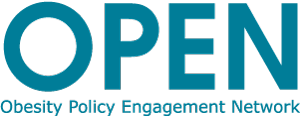London, 8th June 2020: The latest data from PHE, which includes providing additional clarity on the increased risk of poorer COVID-19 outcomes for people with obesity and some of its complications1, is a step toward building a clear evidence base of who is at increased risk.
The Equalities Minister has also outlined next steps to understand drivers of the disparities and relationships between risk factors. While we welcome these developments, it is clearer now more than ever, that we must go much further to increase support for people living with obesity in the UK. This will offer an opportunity to improve the health of the nation and improve COVID-19 outcomes, which will have further health and economic benefits.
In the House of Commons, the Health Secretary stated that COVID-19 had exposed huge disparities in the health of our nation. We absolutely agree; PHE disparities review confirms the anticipated trend, witnessed elsewhere, that people living with obesity in the UK are more likely to be diagnosed with, experience severe illness and to die of COVID-19. Similarly, people living in deprived areas were shown to be at greater risk, and the links between deprivation and obesity are well established.
Many Black, Asian and Minority Ethnic groups are also at high risk of obesity and associated comorbidities, and we agree with the Health Secretary that a continued and proactive effort to understand the drivers of these disparities is vital to understand why some groups are worse-affected and how this can be addressed. We fully advocate for the need for more research in these areas and we await the findings and outcomes of the Government’s Equality Hub with interest.
Despite the need for further investigation and analysis of the data, it must be recognised that we do not need to wait for this to begin to act. Weight management and obesity treatment services have long been under prioritised and as such access remains low or non-existent for many across the population.
The impact of COVID-19 on obesity and associated comorbidities, should ignite an increase in the support available. We need better funding and clear pathways for obesity care that ensure people receive weight management support, reduce comorbidity and lower risk. We can also combat weight stigma and discrimination, particularly in medical settings where it is experienced at alarmingly high rates. Experiences of stigma and inappropriate healthcare leaves people living with obesity less likely to seek the necessary care and may lead to increased feelings of anxiety around the pandemic.
Weight management must be prioritised across all care settings and the need to make multiple treatment options, from supporting lifestyle changes to bariatric surgery, available. As the evidence showing that people living with obesity are more vulnerable to COVID-19 increases, we strongly support and encourage action to ensure people living with obesity – and all those at disproportionate risk – are fully supported within the healthcare system, now and in the long term.
About OPEN
The Obesity Policy Engagement Network (OPEN) UK is a partnership programme, bringing together different expertise across obesity to improve obesity care in the UK. The Secretariat of OPEN UK is funded by Novo Nordisk. Novo Nordisk has had no influence over the content of this press release.
OPEN is a sustained global initiative aiming to achieve national support for improved obesity care.
OPEN is a network for national coalitions of public health, policy, patient representatives and other thought leaders in the field of obesity with representation in over 15 countries including the UK, Italy, Germany and Spain.
OPEN seeks to provide national policy advocates with the opportunity to share diverse perspectives on a common challenge, identify solutions and collaborate to address the current barriers and challenges to effective obesity care.
Through the global network, members obtain insights and tangible tools on how to put in place effective national obesity strategies which deliver workable, effective solutions that successfully address the obesity challenge.
References
1Public Health England (PHE). Disparities in the risk and outcomes of COVID-19 [Online]. 02 June 2020. Accessed at: https://assets.publishing.service.gov.uk/government/uploads/system/uploads/attachment_data/file/889195/disparities_review.pdf







